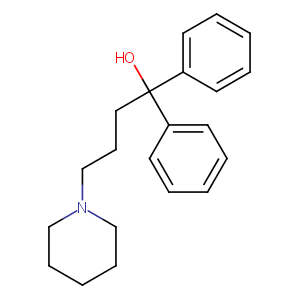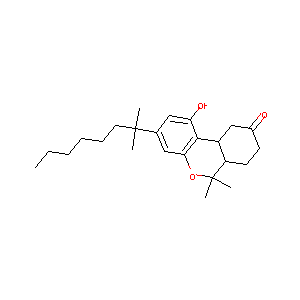| 1 |
Recurrent recessive mutation in deoxyguanosine kinase causes idiopathic noncirrhotic portal hypertension.Hepatology. 2016 Jun;63(6):1977-86. doi: 10.1002/hep.28499. Epub 2016 Mar 31.
|
| 2 |
URL: http://www.guidetopharmacology.org Nucleic Acids Res. 2015 Oct 12. pii: gkv1037. The IUPHAR/BPS Guide to PHARMACOLOGY in 2016: towards curated quantitative interactions between 1300 protein targets and 6000 ligands. (Ligand id: 7163).
|
| 3 |
Drugs@FDA. U.S. Food and Drug Administration. U.S. Department of Health & Human Services. 2015
|
| 4 |
Diphenidol-related diamines as novel muscarinic M4 receptor antagonists. Bioorg Med Chem Lett. 2008 May 1;18(9):2972-6.
|
| 5 |
Novel 1',1'-chain substituted hexahydrocannabinols: 9-hydroxy-3-(1-hexyl-cyclobut-1-yl)-hexahydrocannabinol (AM2389) a highly potent cannabinoid r... J Med Chem. 2010 Oct 14;53(19):6996-7010.
|
| 6 |
Cloning and pharmacological characterization of the dog cannabinoid CB?receptor. Eur J Pharmacol. 2011 Nov 1;669(1-3):24-31. doi: 10.1016/j.ejphar.2011.08.002. Epub 2011 Aug 19.
|
|
|
|
|
|
|


